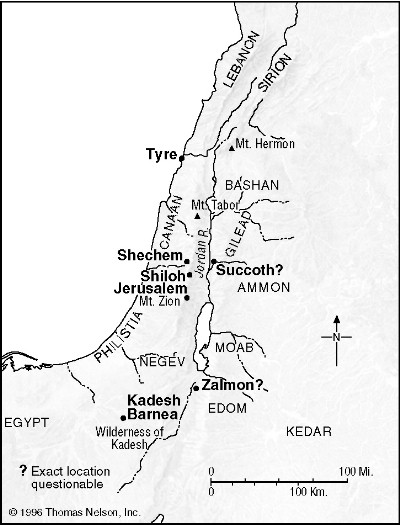The term in the superscription, “Altaschith,” means “Do not destroy.” It occurs in Psalms 57-59 and 75 (see our study of Psalm 57, 58, 59, and 75). Although the meaning is not clear, some have conjectured that it was a tune of a popular song. Isaiah 65.8 seems to reference it. It is of interest that David uses this term when he is confronted with the possibility of killing King Saul in 1 Samuel 26.9 (see our study of 1 Samuel 26). However, the setting of the psalm is best placed in the time of Absalom’s rebellion (2 Samuel 15-18), hence the placement in our studies.
This psalm expresses in detail what Jesus prayed in Matthew 6.9-13. Early Christian tradition has the psalm describing the treatment the Sanhedrin gave Jesus (Matthew 26.57-68). The division of the psalm presents three parts:
- Verses 1-5-The Indictment of the Wicked Judges.
These verses present the truth of Romans 1-3, wherein Paul reminds us that none are righteous, all have fallen short, and we are born wicked. David describes these judges as either judging in place of God or acting as if they were gods (1). Verse one can also be translated “speaking righteousness in silence.” This would mean they know what to do but refuse to speak up for the truth. This reminds me of Phil Keaggy’s song “Little Ones.”
- Verses 6-9-Imprecatory Prayer upon the Wicked Judges.
David’s prayer is quite graphic, presenting various metaphors for God’s judgment upon the ones who do evil. Judges are to represent God in terms of justice and righteousness. In this circumstance, and in the United States today, we find them far from the truth. The point that needs to be made in both periods of history is that the ones who perpetrate the evil are unaware that it is evil. They are doing what “seems right in their own eyes” and is accepted among those who are present. The book of Judges presents this truth. David prays for God to
- break the teeth in their mouths;
- tear out the fangs of the young lions, O LORD!
- let them vanish like water that runs away;
- like grass let them be trodden down and wither.
- let them be like the snail that dissolves into slime;
- like the untimely birth that never sees the sun.
- sooner than your pots can feel the heat of thorns, whether green or ablaze, may he sweep them away!
These are graphic, swift, and complete. He is asking God to annihilate their presence and memory from the face of the earth.
- Verses 10-11-The Righteous Vindicated.
Whether in this life or the judgment to come (2 Corinthians 5.10), we will all receive righteous judgment (1 Corinthians 3.11-15). For those who know Christ as Savior, that judgment has been paid through His death. For those who do not know Christ as Savior, that judgment will be paid eternally by them. Who will pay your penalty?
How angry do you get over sin in the world? Your sin? Are you praying for God to bring justice to those in the world acting like God but working evil (remember, this will include you)?
Media
- Little Ones by Phil Keaggy





